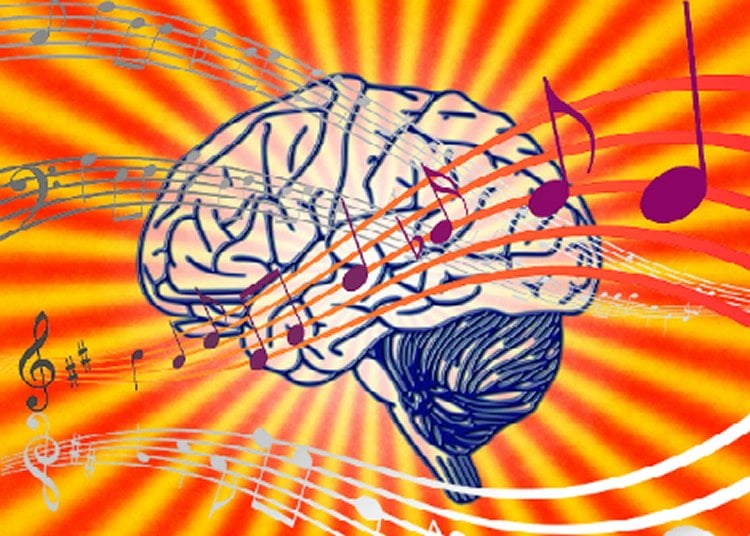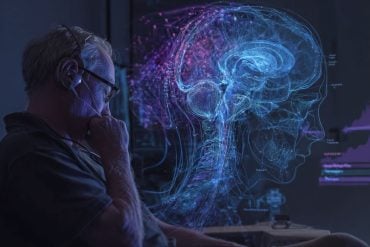New study finds some people can be trained to learn absolute pitch.
If you’re a musician, this sounds too good to be true: UChicago psychologists have been able to train some adults to develop the prized musical ability of absolute pitch, and the training’s effects last for months.
Absolute pitch, commonly known as “perfect pitch,” is the ability to identify a note by hearing it. The ability is considered remarkably rare, estimated to be less than one in 10,000 individuals. It has always been a very desired ability among musicians, especially since several famous composers, including Mozart, reportedly had it. The assumption has been that this special talent has a critical period to be established in childhood based on early musical training and that it was not possible for adults to acquire this skill.
In this new study published by the journal Cognition, Howard Nusbaum, professor of psychology, and colleagues tested how much an individual’s general auditory working memory capacity can predict the success of acquiring absolute pitch. Other UChicago authors on the paper are psychology doctoral student Stephen C. Van Hedger, post-doctoral scholar Shannon L.M. Heald and College undergraduate Rachelle Koch.
This study follows up from the group’s previously published study, which shows that people with absolute pitch can be “retuned” in about 45 minutes of listening, demonstrating that absolute pitch is not so absolute. The new study shows that people without absolute pitch have the ability to learn notes quickly as well. A 2013 study from Harvard University researchers reported that a drug commonly used to treat epilepsy could effectively reopen a critical period of learning ability, allowing a person to learn skills like absolute pitch. The current UChicago study does not use medications to train the brain to learn absolute pitch skills to a comparable degree.
“This is the first significant demonstration that the ability to identify notes by hearing them may well be something that individuals can be trained to do,” said Nusbaum. “It’s an ability that is teachable, and it appears to depend on a general cognitive ability of holding sounds in one’s mind.”
The study was conducted in two experiments. Seventeen UChicago students participated in the first experiment. None had absolute pitch, and all had variable amounts of music experience. The student participants listened to notes sampled from real musical instruments through studio headphones. They heard a brief note, which was then masked by white noise. The participants were then asked to try to recreate the originally heard target note. Another part of the experiment involved testing participants after they heard an isolated piano note, and then they were asked to identify it by its musical note name (e.g., C or F-sharp).
For the training portion of the experiment, participants listened to and classified 180 piano notes—in three, 60-note blocks—and then received immediate feedback on whether they had selected the correct label for the note. They then heard the note again. Participants showed significant improvements in note identification after the training.
The researchers were able to retest some of the study participants a few months after the training session. They found that although the participants’ learning had decreased slightly, the individuals retained most of their ability to identify notes with absolute pitch.

In the second experiment, 30 UChicago students, staff and community members participated. The experiment was similar to the first one in attempting to identify notes heard through headphones. They were trained on 12 piano notes repetitively and received both visual and auditory feedback on their responses. They were then tested to determine if the training made any difference towards acquiring absolute pitch.
Although training adults to learn absolute pitch has been met with much skepticism, there is now evidence that it can be done. “We demonstrate three important findings in this paper,” said Nusbaum. “First, in contrast to previous studies, we are able to establish significant absolute pitch training in adults without drugs. Second, we show that this ability is predicted by auditory working memory. Third, we show that this training lasts for months.”
The findings suggest that adults can acquire absolute pitch even without that early exposure to pitches and musical labels. However, the current set of studies cannot directly address whether this adult-acquired absolute pitch ability is comparable to the performance of “true” perfect pitch.
Source: Jann Ingmire – University of Chicago
Image Source: Image credited to NeuroscienceNews.com. We release this image into the public domain. Feel free to use
Original Research: Abstract for “Auditory working memory predicts individual differences in absolute pitch learning” by Stephen C. Van Hedger, Shannon L.M. Heald, Rachelle Koch, and Howard C. Nusbaum in Cognition. Published online April 20 2015 doi:10.1016/j.cognition.2015.03.012
Abstract
Auditory working memory predicts individual differences in absolute pitch learning
Absolute pitch (AP) is typically defined as the ability to label an isolated tone as a musical note in the absence of a reference tone. At first glance the acquisition of AP note categories seems like a perceptual learning task, since individuals must assign a category label to a stimulus based on a single perceptual dimension (pitch) while ignoring other perceptual dimensions (e.g., loudness, octave, instrument). AP, however, is rarely discussed in terms of domain-general perceptual learning mechanisms. This is because AP is typically assumed to depend on a critical period of development, in which early exposure to pitches and musical labels is thought to be necessary for the development of AP precluding the possibility of adult acquisition of AP. Despite this view of AP, several previous studies have found evidence that absolute pitch category learning is, to an extent, trainable in a post-critical period adult population, even if the performance typically achieved by this population is below the performance of a “true” AP possessor. The current studies attempt to understand the individual differences in learning to categorize notes using absolute pitch cues by testing a specific prediction regarding cognitive capacity related to categorization – to what extent does an individual’s general auditory working memory capacity (WMC) predict the success of absolute pitch category acquisition. Since WMC has been shown to predict performance on a wide variety of other perceptual and category learning tasks, we predict that individuals with higher WMC should be better at learning absolute pitch note categories than individuals with lower WMC. Across two studies, we demonstrate that auditory WMC predicts the efficacy of learning absolute pitch note categories. These results suggest that a higher general auditory WMC might underlie the formation of absolute pitch categories for post-critical period adults. Implications for understanding the mechanisms that underlie the phenomenon of AP are also discussed.
“Auditory working memory predicts individual differences in absolute pitch learning” by Stephen C. Van Hedger, Shannon L.M. Heald, Rachelle Koch, and Howard C. Nusbaum in Cognition. Published online April 20 2015 doi:10.1016/j.cognition.2015.03.012






